All lines are endowed with their own set of image creating powers; from changing the way you appear physically to altering the impression you make on others. Like many things in life, what is taught in theory is not quite as black and white when applied to real life and so it is with horizontal design line features.
What are horizontal design features? They’re anything that draws the eye from one side to another across a horizontal plane.
They can be found in:
- within garments: such as boat necklines, off the shoulder collars, bilateral pockets etc.
- structural components: panels, pleats, seams and fabrics that stand away from the body etc.
- garment detailing or embellishments: horizontal lace paneling and ruffles etc.
- fabric: horizontal patterns and prints.
- colour: horizontal blocking, outfits comprising of several different colored garments etc.
- accessories: scarves, belts, closed/high vamp shoes, low heels and/or blunt toe shoes etc.
- length: short garments.
Physical Effect: shortens and widens. Can also be used to balance the body.
Psychological Impression: stability and composure.
Associations: sport and manual labor.
As a Pattern: is most seen in casual clothes and therefore best worn in limited amounts at work.
THE BASICS
Most women are aware that horizontal design features such as stripes have the ability to make them appear wider, and as a result are best avoided. But that’s not necessarily correct as you will see. When employed in the right way they can be incredibly effective in creating the perfect proportional balance for your body.
Play Up or Down
One of the things I enjoy most is demonstrating to audiences how quickly a slight change to a garment or outfit can significantly improve their appearance. This is most easily done by manipulating hemlines.
Bustlines
Regardless if your girls are overly big or teeny tiny, horizontal illusion can come to your rescue. If you would like to minimize the size of your bust ensure the length of your sleeves are well above, or well below the fullest part of your bustline. The photos of beautiful Christina Hendricks demonstrates this very well. When she wears sleeves that are too close to the fullest part of her bustline she adds extra visual width to that part of her body making her bust appear larger. If that’s you desire – great! If not, the further above or below your bustline your sleeve ends, the small your bust will appear.
Of course if like Keira Knightley you were missing from the line-up when God was giving out boobs then ending your sleeves at the fullest part of your bustline is the PERFECT thing to do – along with a push-up bra and a little blush in your cleavage to to give the illusion of more depth.
Line Hierarchy
The design line/feature that is the most dominant is the one that will be seen first and will be the most powerful; only after the first feature/line has been noticed will other design features be seen. In the case of the white dress that Kiera is wearing in the top line of photos below, while the dress does have a horizontal design features (lines) either side of her upper chest but the vertical seam running from her shoulders to the hemline attracts attention first and being so strong it negates the horizontal line. In the following three photos each have a horizontal design feature that adds width and/or fullness to Kiera’s bustline.
Large Waistline/ Big Tummy:
Where you are widest is never the best place to end a garment if it means creating a strong horizontal line. This beautiful plus size model looks much longer and leaner when the top is longer (out). Tucking it in emphasizes her small waist but at the expense of dropping her visual height and increasing her width. When the sleeves end at the same location (waist) the effect is magnified. If her top were a darker color the horizontal effect would be minimized due to the lower colour contrast level.
A Striped Affair
If anything gets attention, it’s stripes. Wide, contrasting stripes are clear victors when it comes to adding width and shortening apparent weight. Multiple thin stripes in a garment that is longer than it is wide have the power to elongate and slim as the eye wants to climb them rather than move from side to side.
AFFAIRS OF COLOR
Contrast
Contrast also plays an important part in gaining the look you want. The lower the colour contrast between the stripes the more diminished the effect. Below both dresses have wide stripes but the pink and orange dress is more slimming even though it is the shorter of the two. In other words, the extra length of the brighter dress did not counteract the effect of the wide, bright (high contrast) stripes.
WEIGHT AND HEIGHT ILLUSIONS
Color Blocking
The more your body’s length is divided by horizontal divisions of color the shorter and wider you will appear to be and vice versa.
The woman with red hem border skirt has seven horizontal color divisions. Each one visually shortening and broadening her body:
- Black tipped shoes
- Tanned legs
- Red border on skirt
- Skirt pattern
- Top hemline against skirt color
- White line crossing chest (top)
- Sleeve hemline
Keep in mind also that these women are models with figures most of us dream of, on us the effect is magnified.

SHOE STRAPS
Most women LOVE shoes and I’m no exception however, I’m over my ideal weight, have short legs and am over 50. So my legs need all the help they can get to look as long as possible and that’s why I’m careful about choosing the color of the shoe, the vamp and location of the straps.
Must Know Basics
- The more your foot is covered by the shoe/boot, the shorter your leg will look – short = fat. The vamp is the mouth of the shoe and the more it exposes your foot the longer and leaner your leg will appear.
- The more horizontal lines that cross your foot the short your leg will appear. Ankle straps unless thin are best for long legged women with slender legs. Thin ankle straps are less harmful than those that are wide and flesh colored straps are better again.
Best options:
- shoes with low vamps (last shoe 2nd row)
- add matching hosiery to camouflage the strap
- wear low vamp shoes in a color that matches your skin
- heels – the highest you can manage.
APPARENT HEIGHT
Horizontal design lines and features can be used to increase or decrease apparent height.
The higher on your body the line or feature is, the taller you will appear and the wider the area it has been applied to will appear to be.
BALANCING ACTS
By being aware of the power of design lines/features to broaden and balance your the body you can create the illusion of a well balanced figure within any price point. Here are a few examples:
To Balance a Full Hipline: Short wide sleeves, boat/wide necklines, bilateral focal points, stripes above the waist.
To Balance a Full Bustline: Full A line skirts, drops waists and focal points below the waist.
To Balance a Rectangular Figure: Horizontal dark waistbands or belts (not tight), high horizontal focal points, Fit and flare dresses, stripes above or below waist (not both), flared shorts or wide to palazzo pants, peplums.

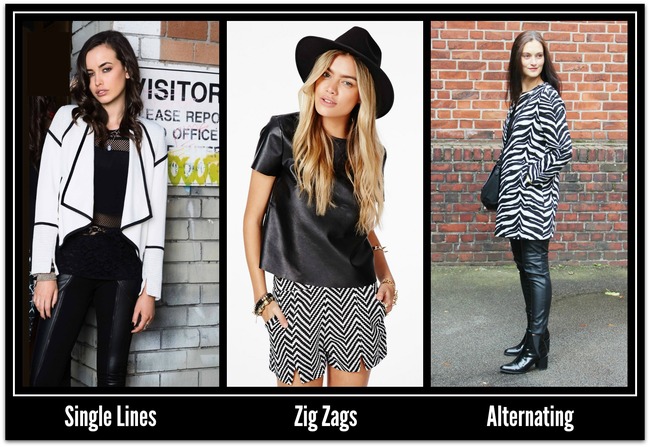

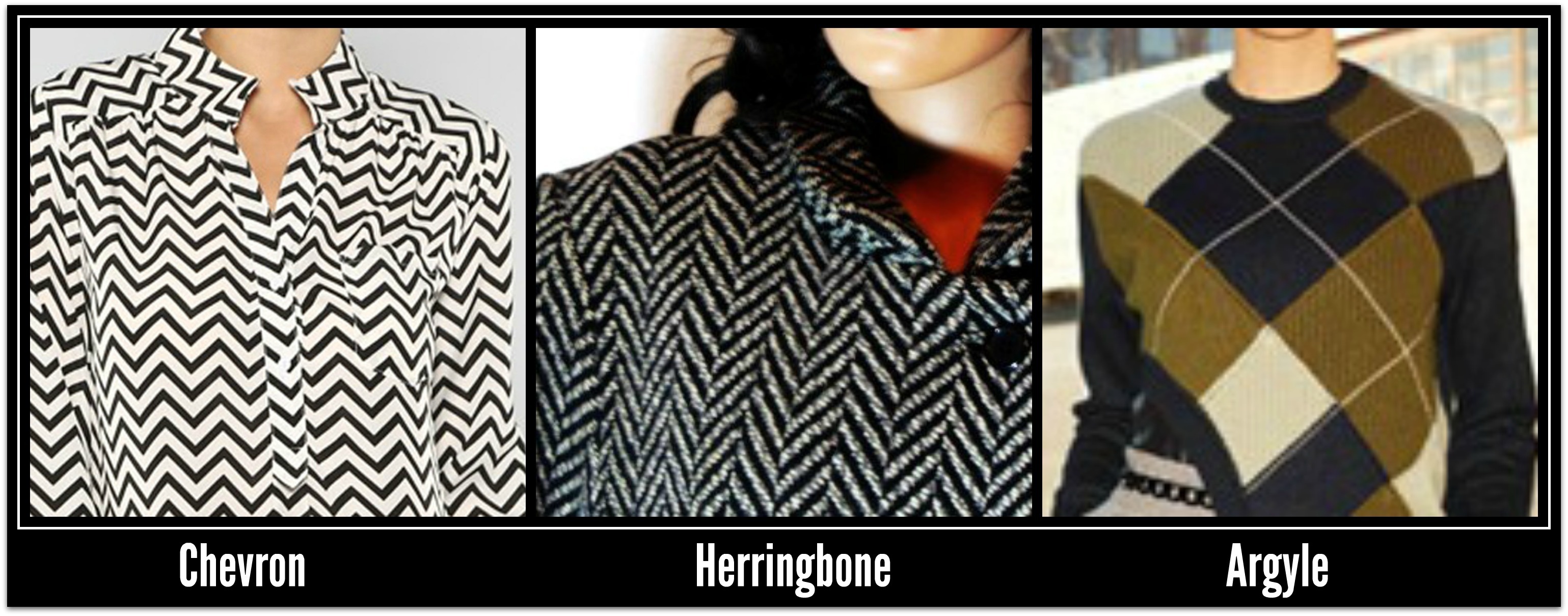
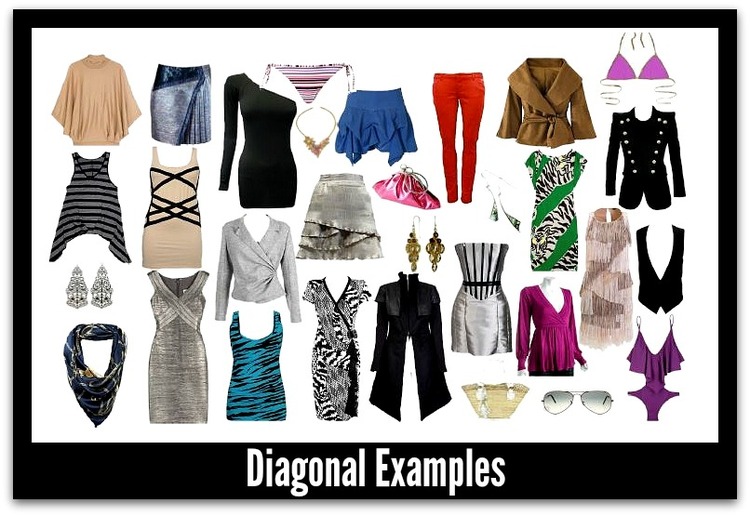
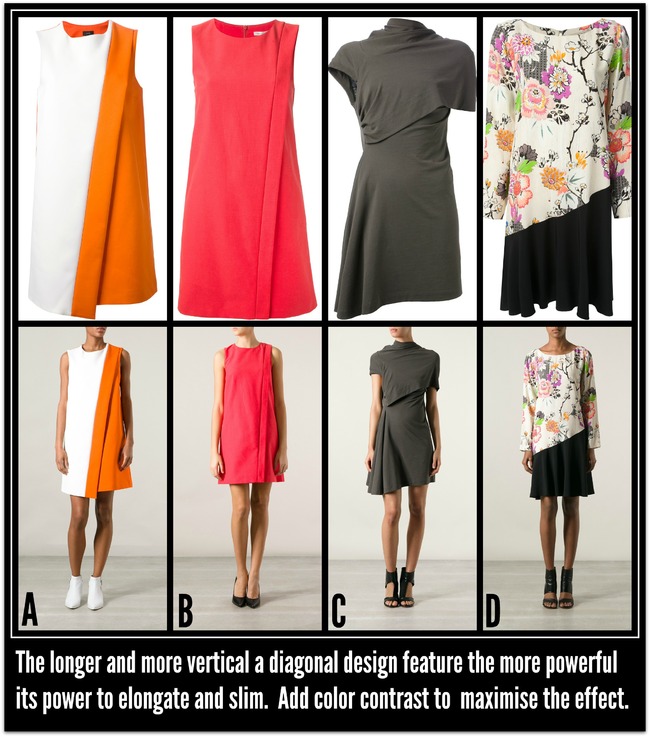
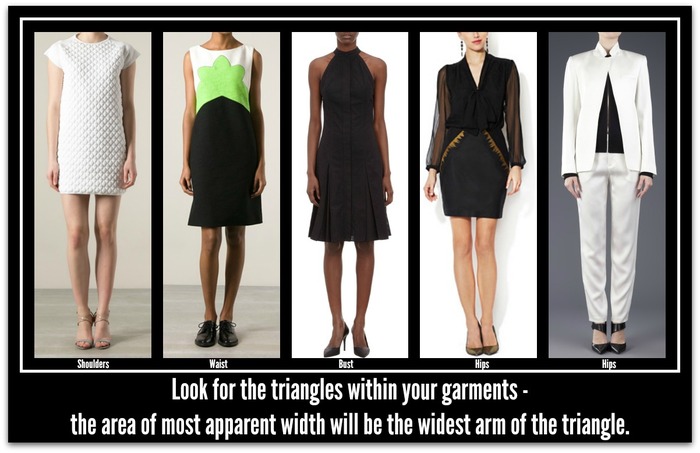
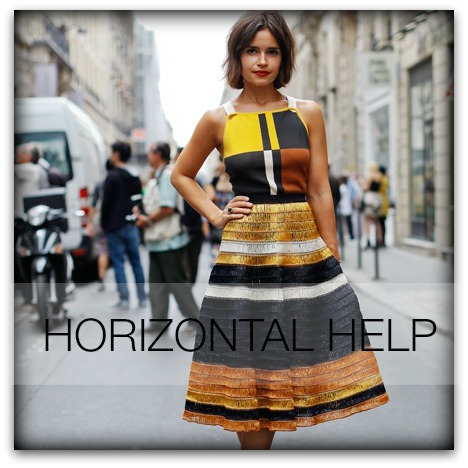












Recent Comments